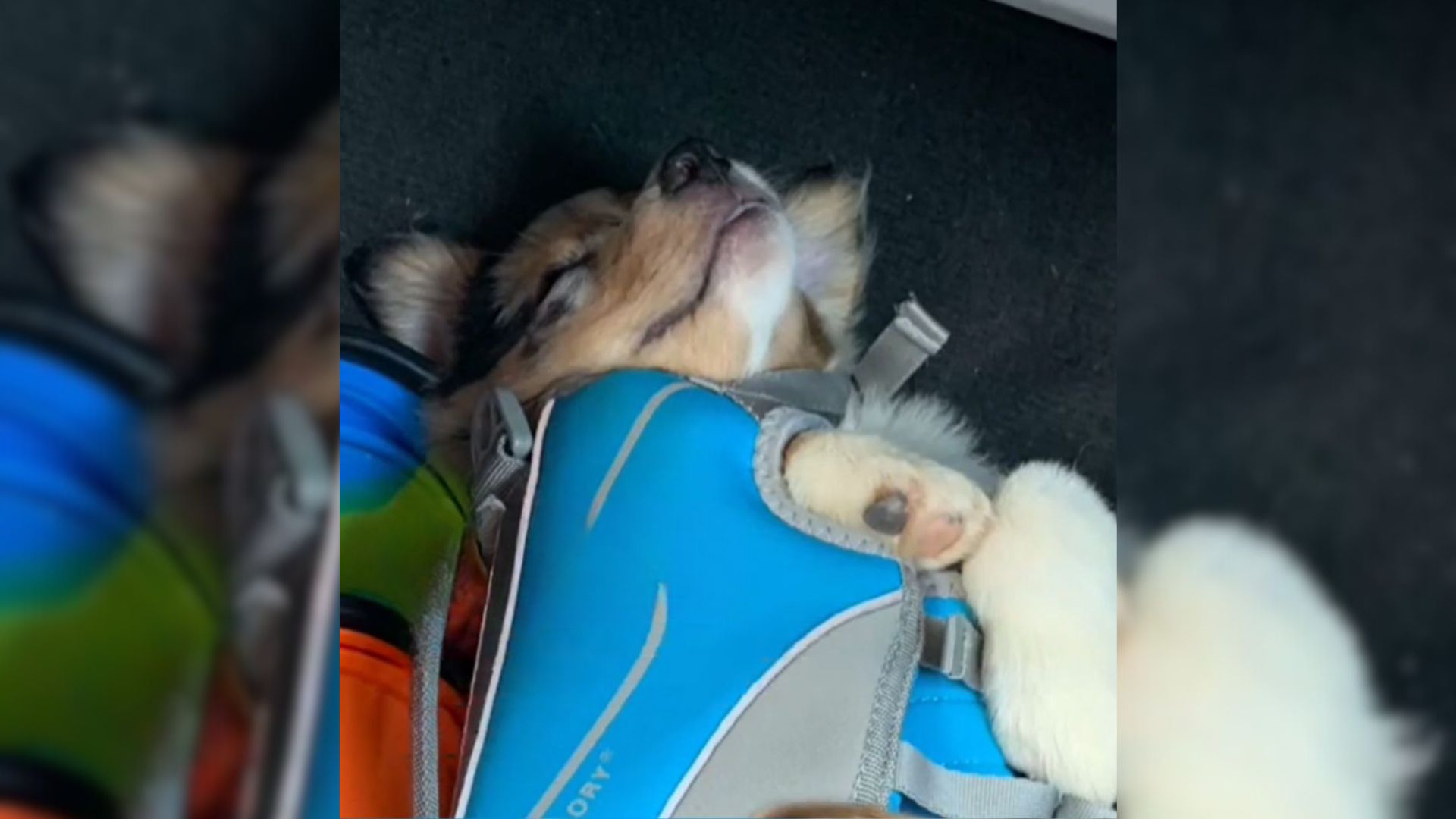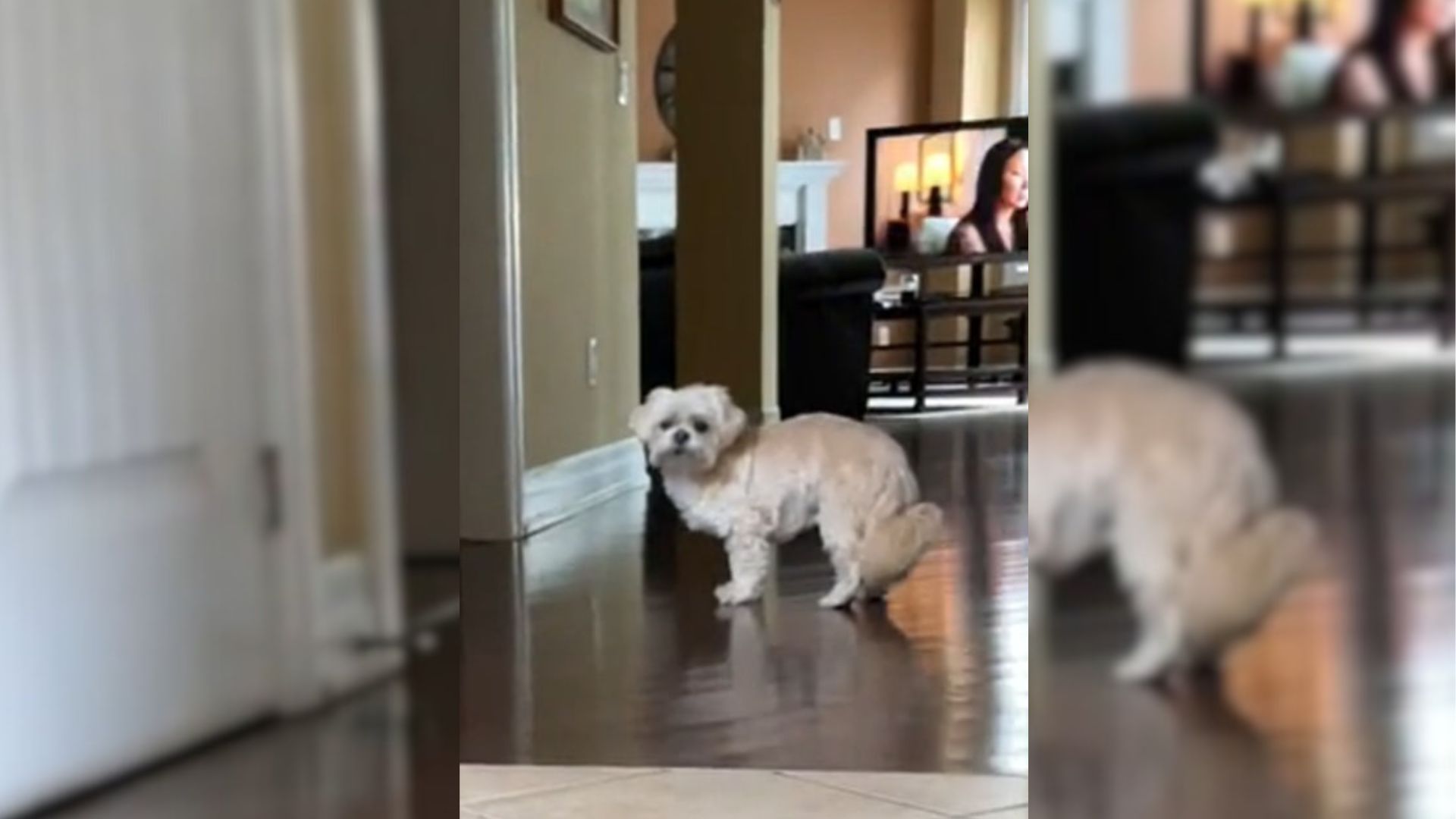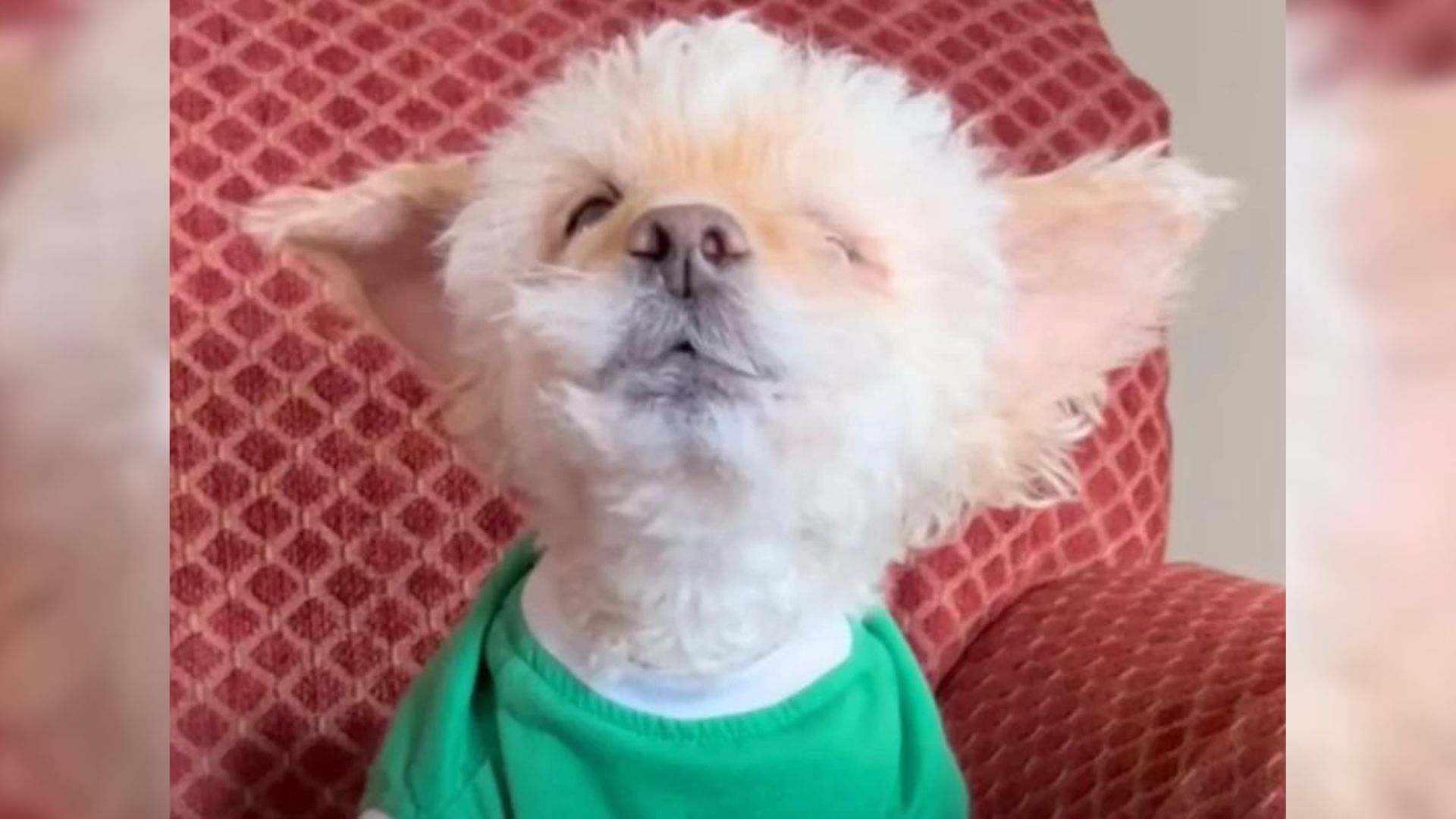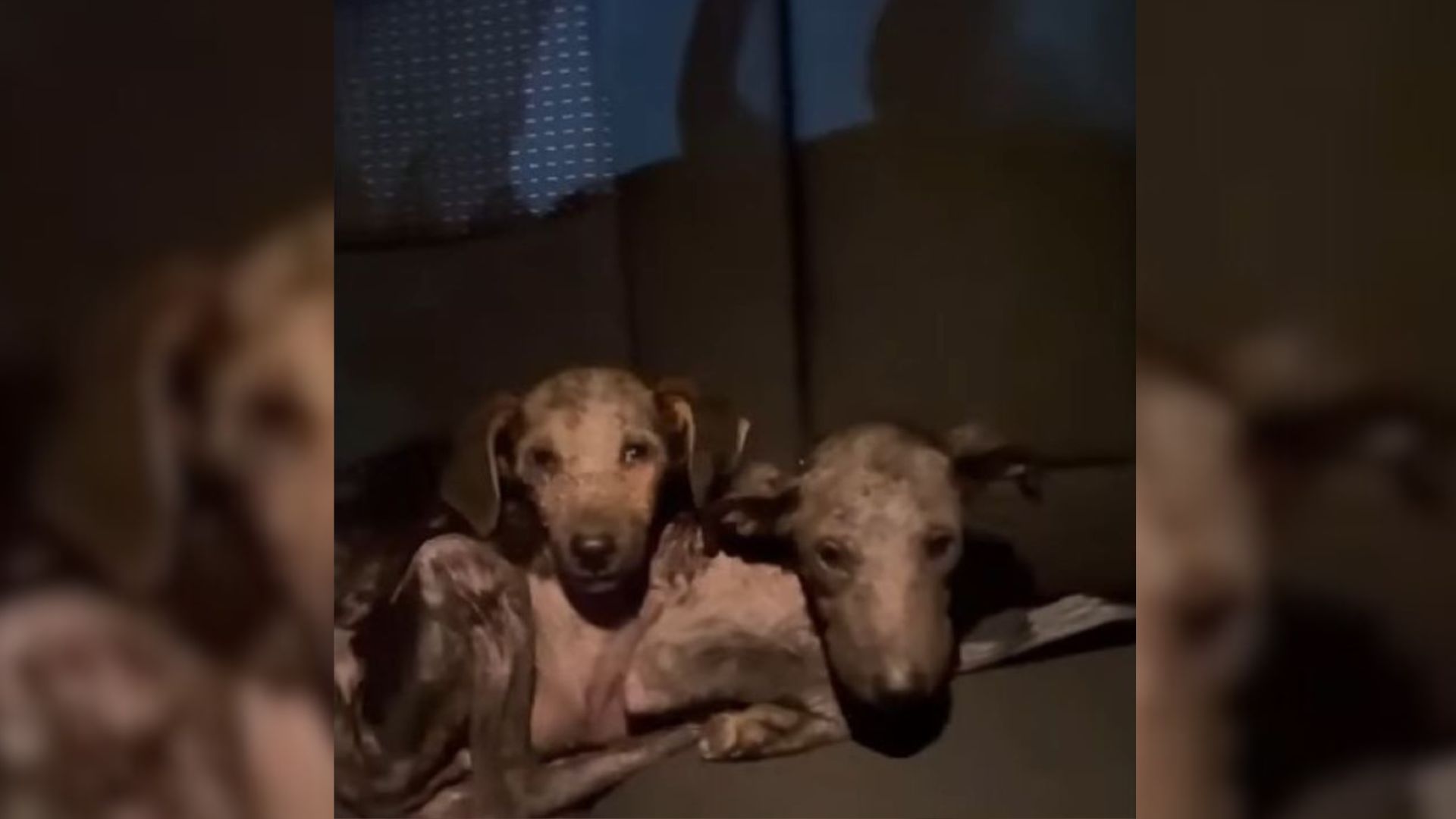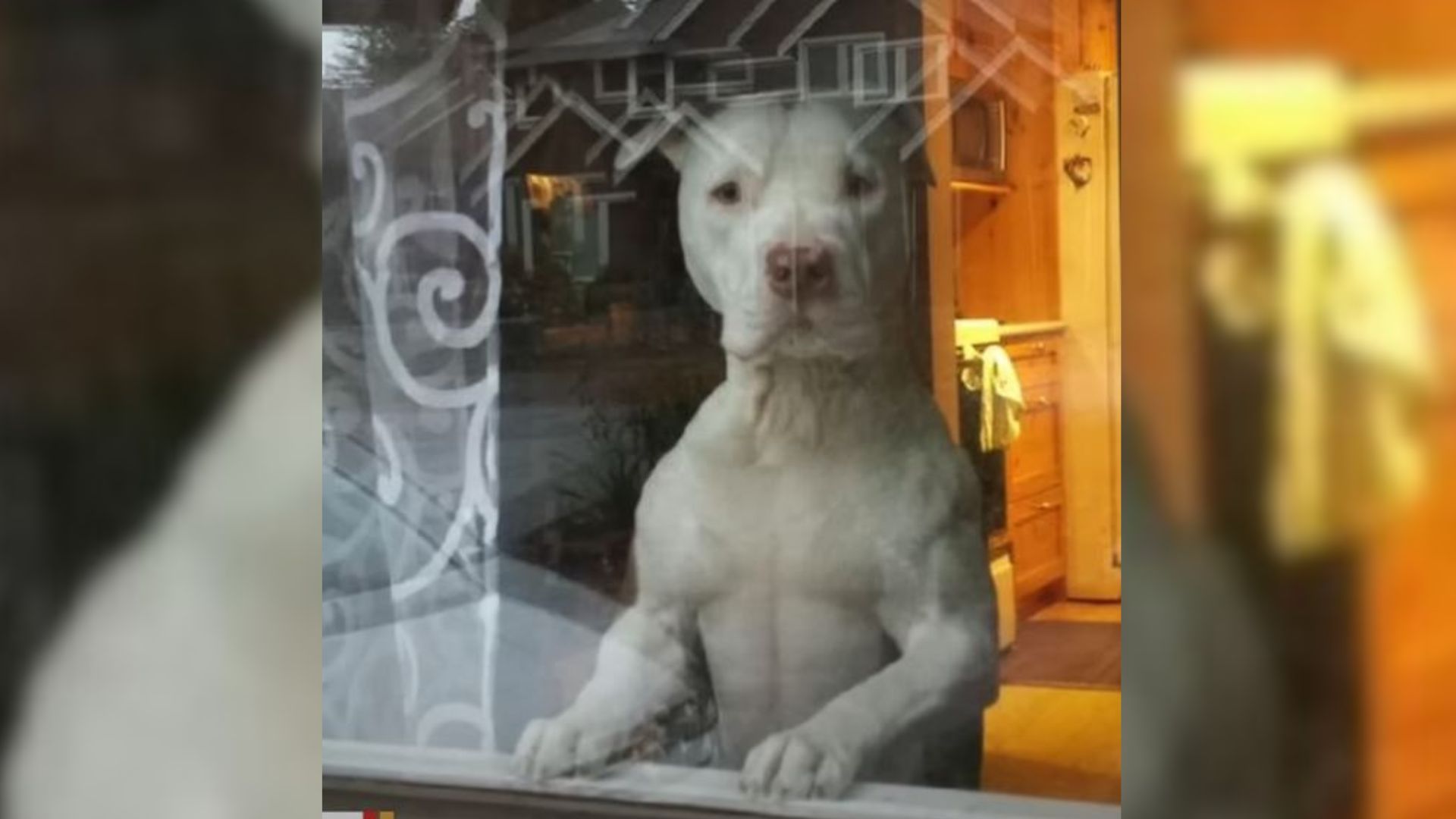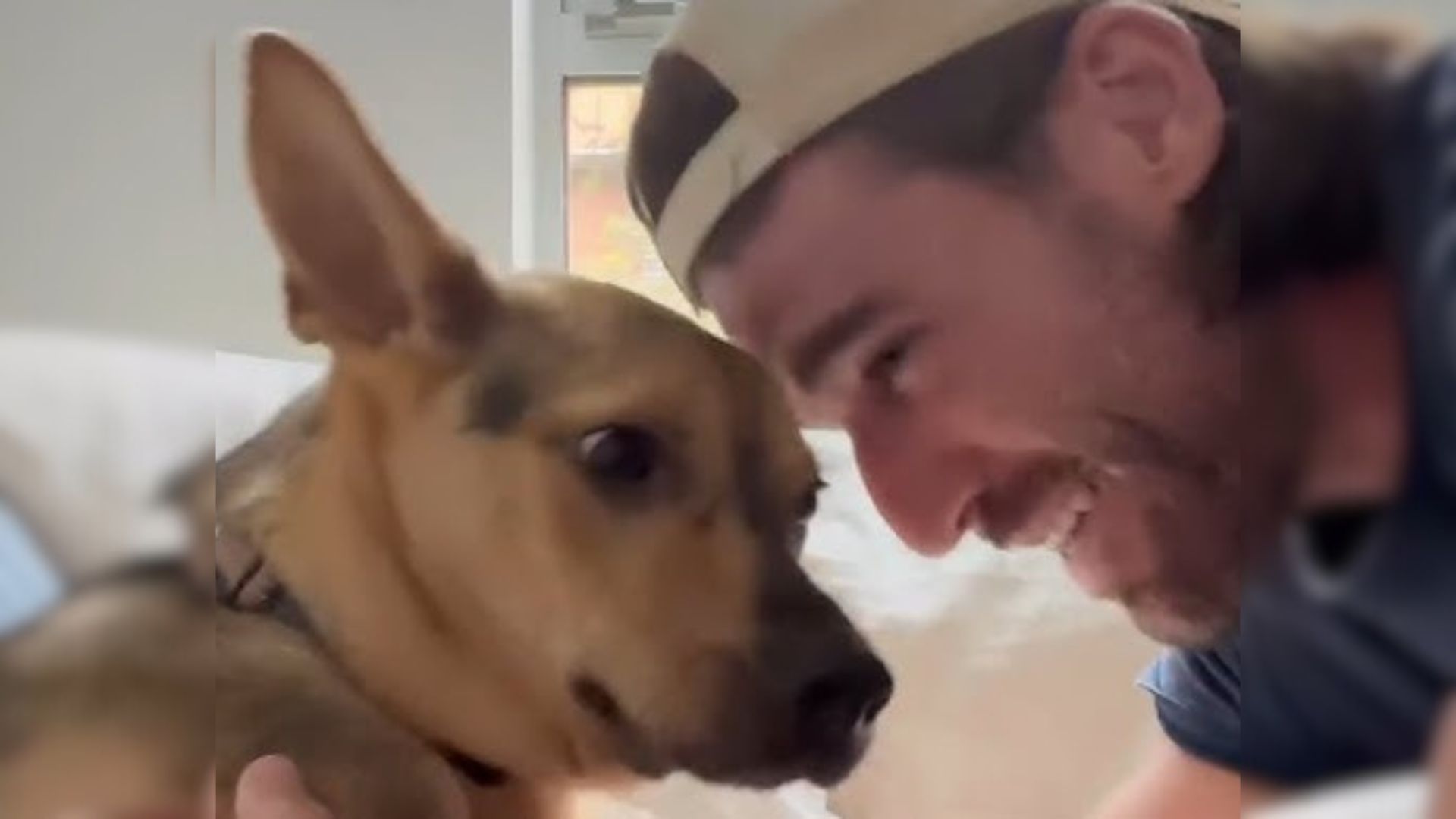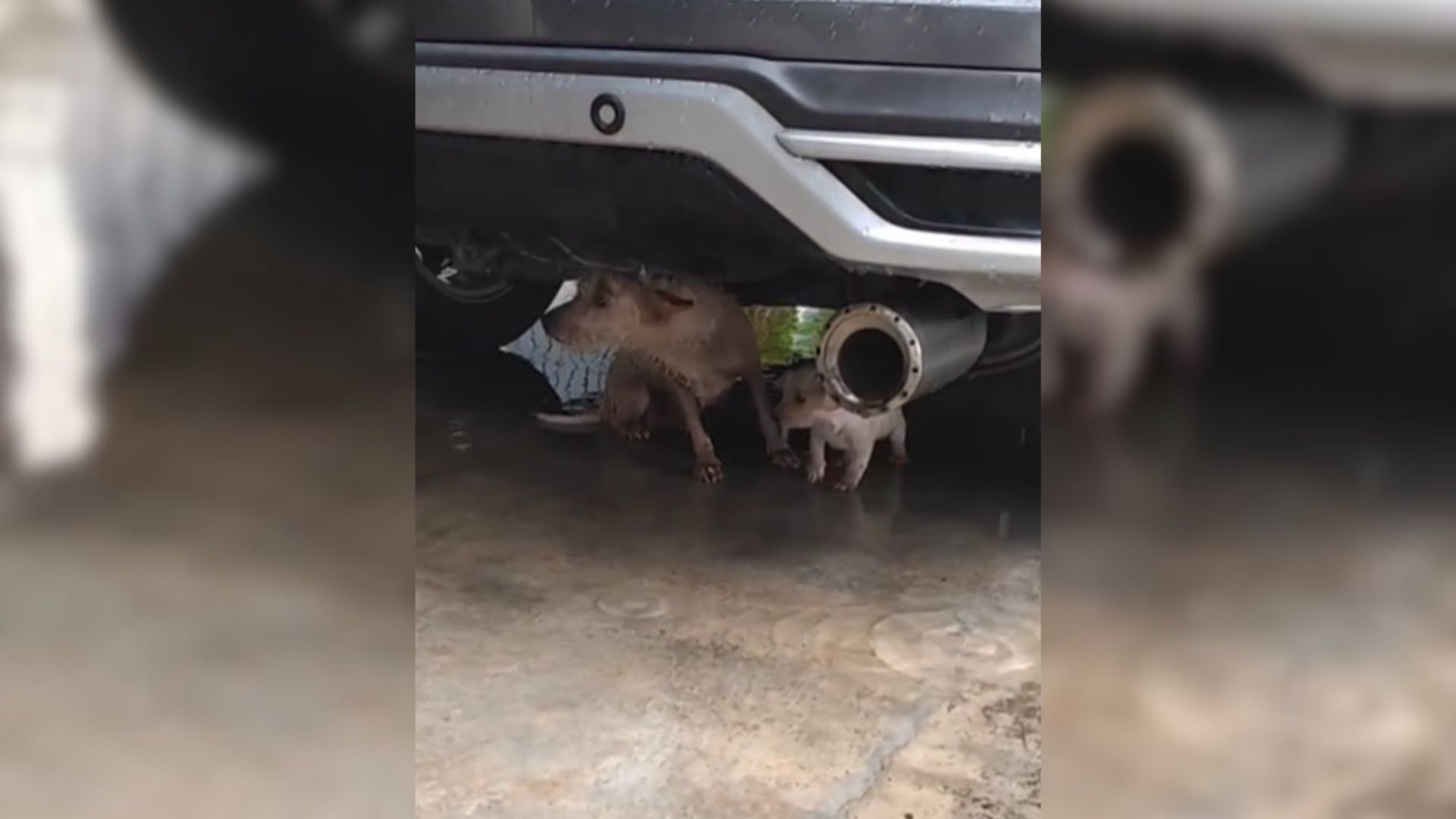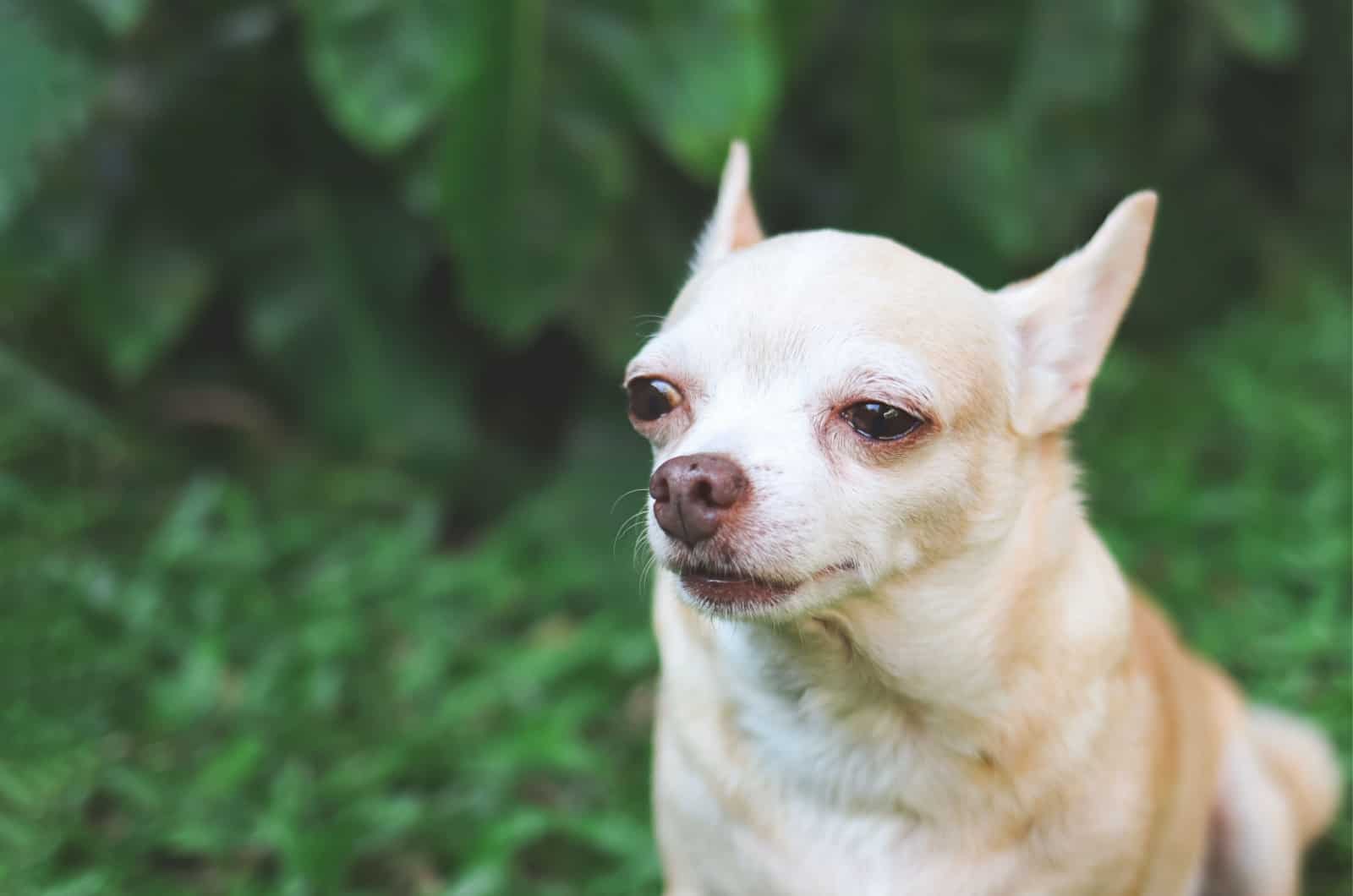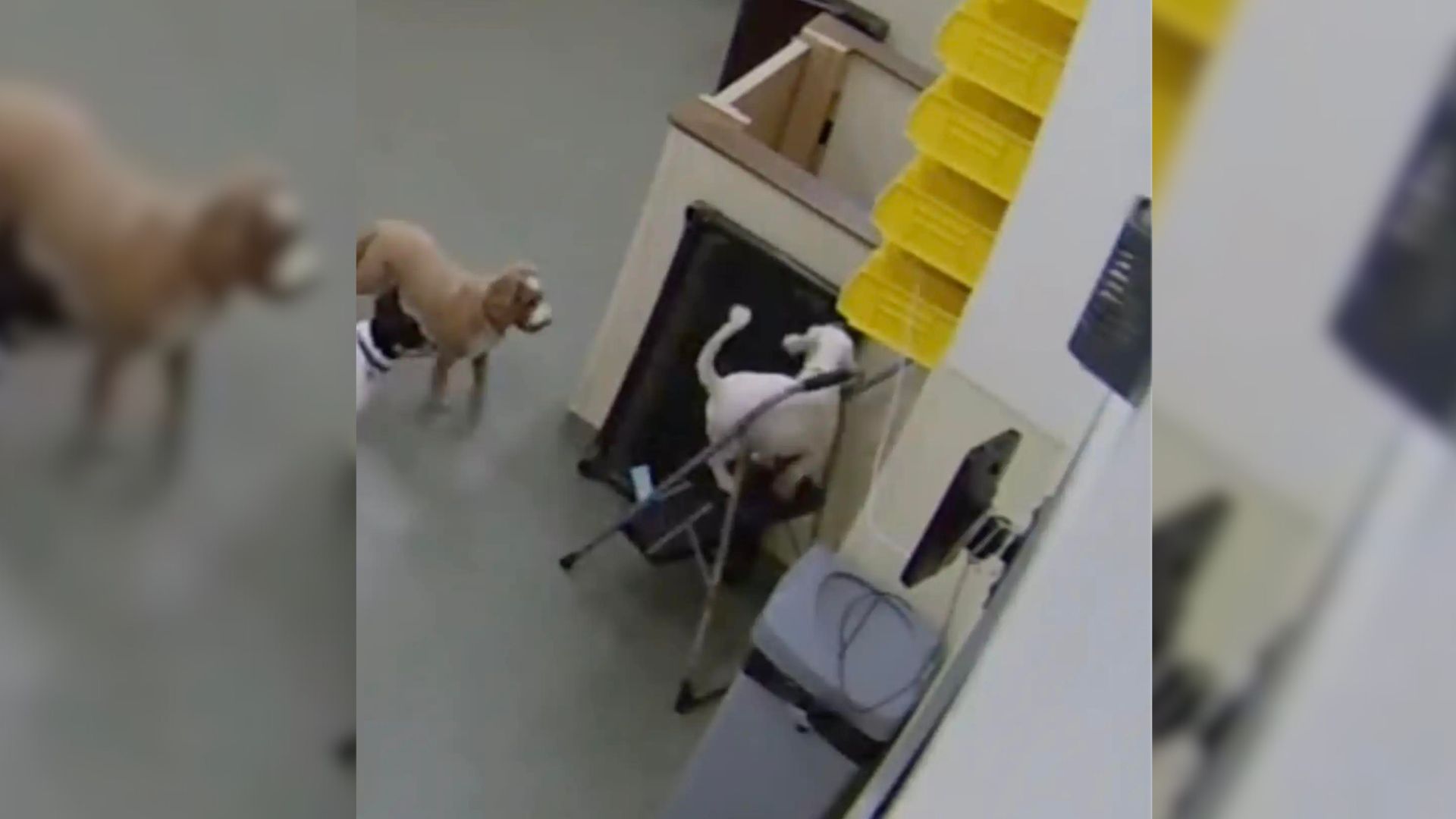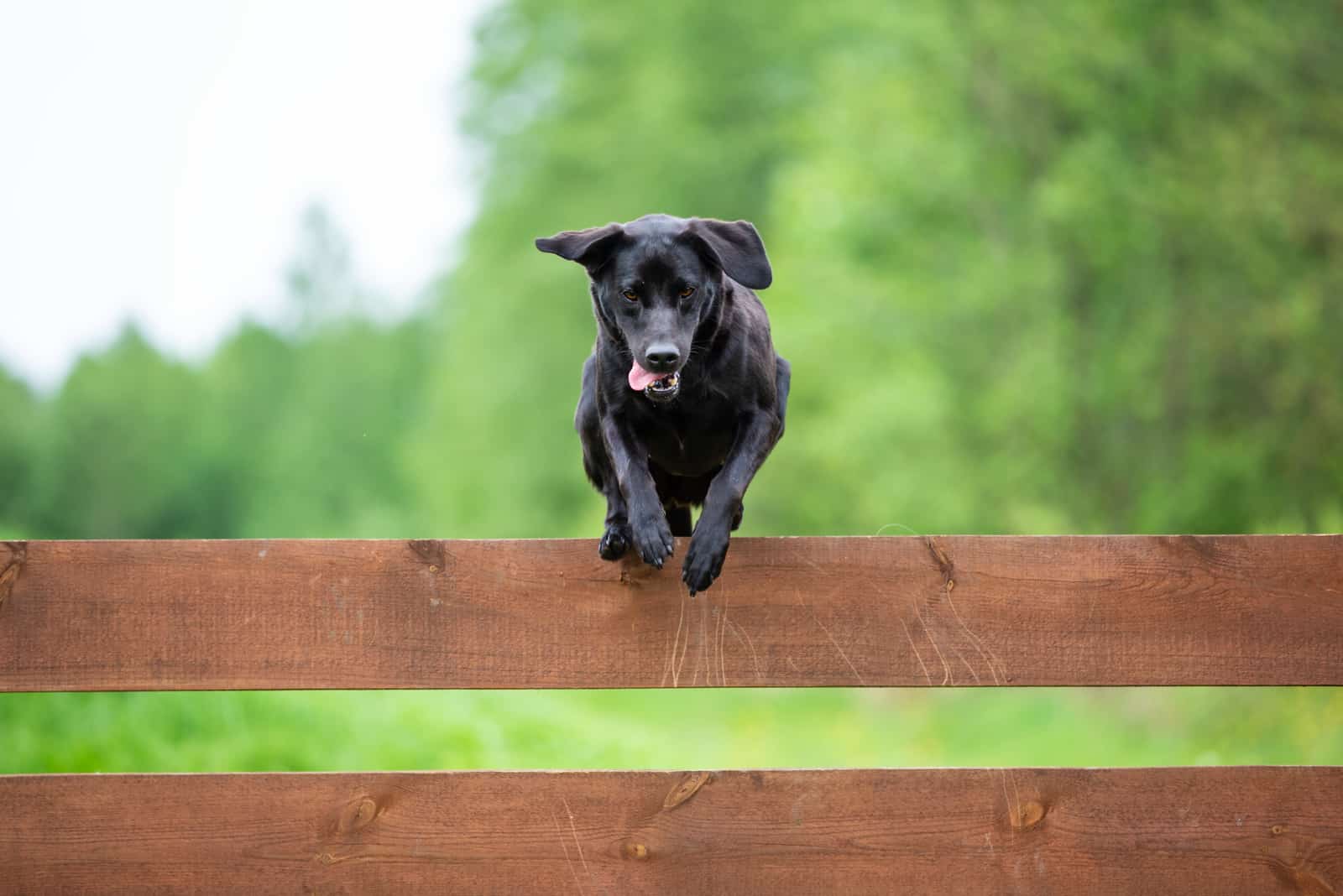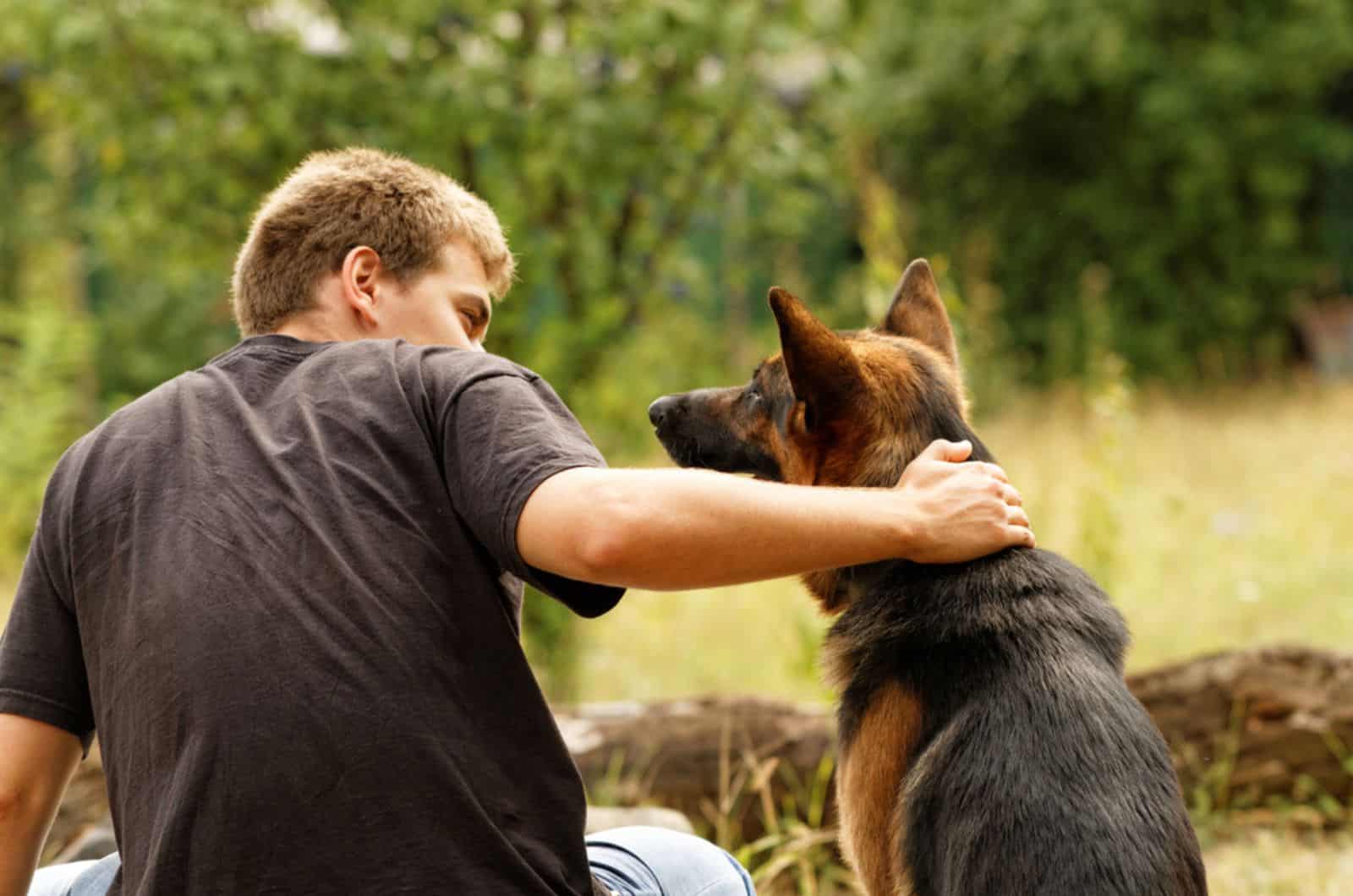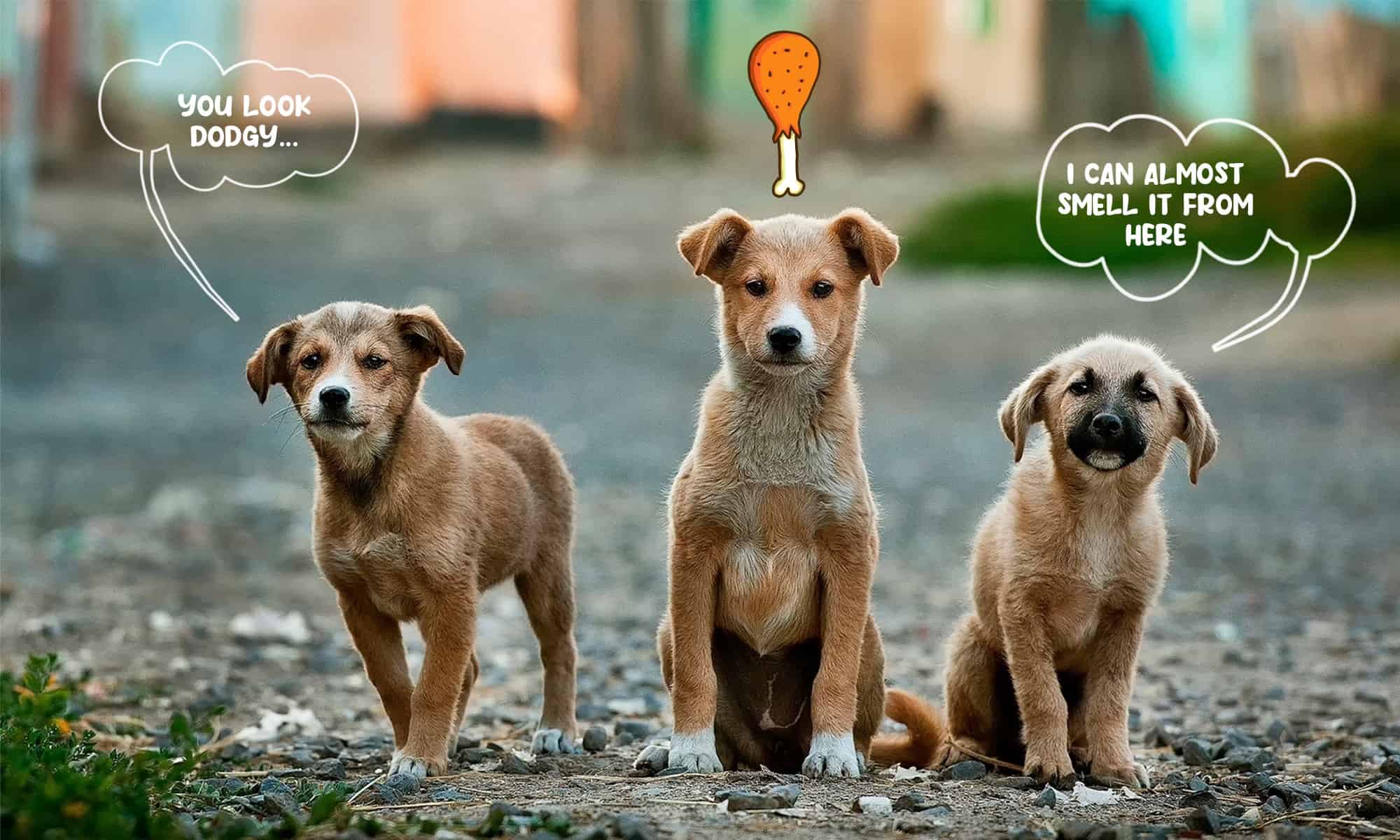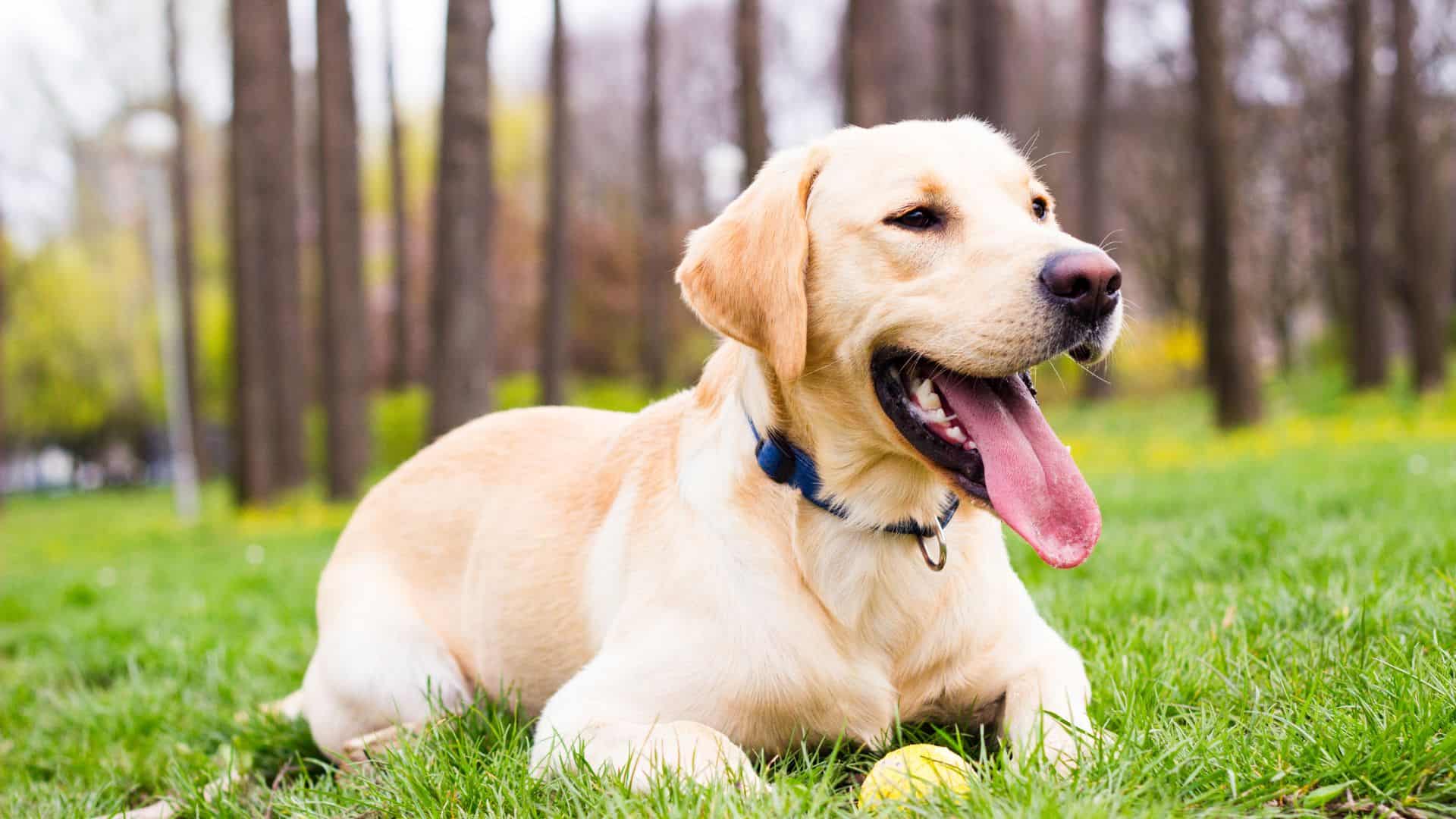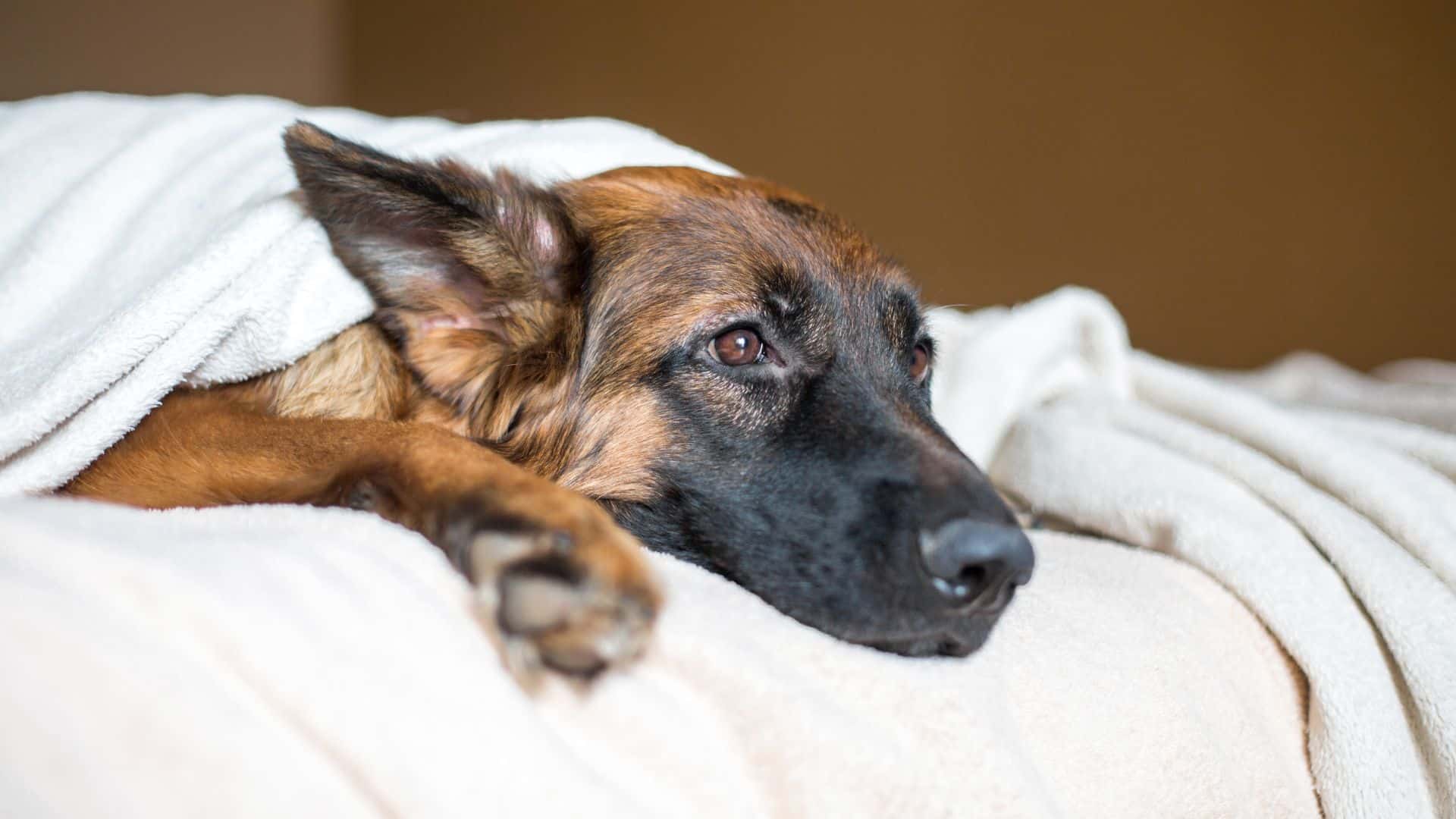One of the biggest mysteries is about to be busted. Why is my dog licking his butt? Does he feel itchy? Is it a way of grooming like when cats do it?
Hold on, one question at a time!
Once you ask yourself: “Why is my dog licking his butt?” you need to be ready to hear the causes and how to treat them. Now, let me tell you something: it’s not pretty at all!
Your dog is most likely licking his butt because it’s itchy. Some cases do include licking as a way of grooming if they feel messy. However, itchiness is more common.
But, what causes butt itchiness? Allergic reactions or even parasites?
Sure, they do, but there are other reasons too.
Let’s scratch that itch and find out why your dog is licking his butt!
Is Licking The Butt Ever Acceptable?
Of course, it is!
Licking their private parts is normal for all canines as long as it’s to a moderate degree. Some dogs, whether female or male, lick their private parts after peeing to clean themselves.
However, this is not standard behavior. Dogs will lick their butts if they have a watery stool to clean up afterward. Normal consistency feces don’t call for licking up.
What Are The Symptoms Of Rectal Itching In Dogs?
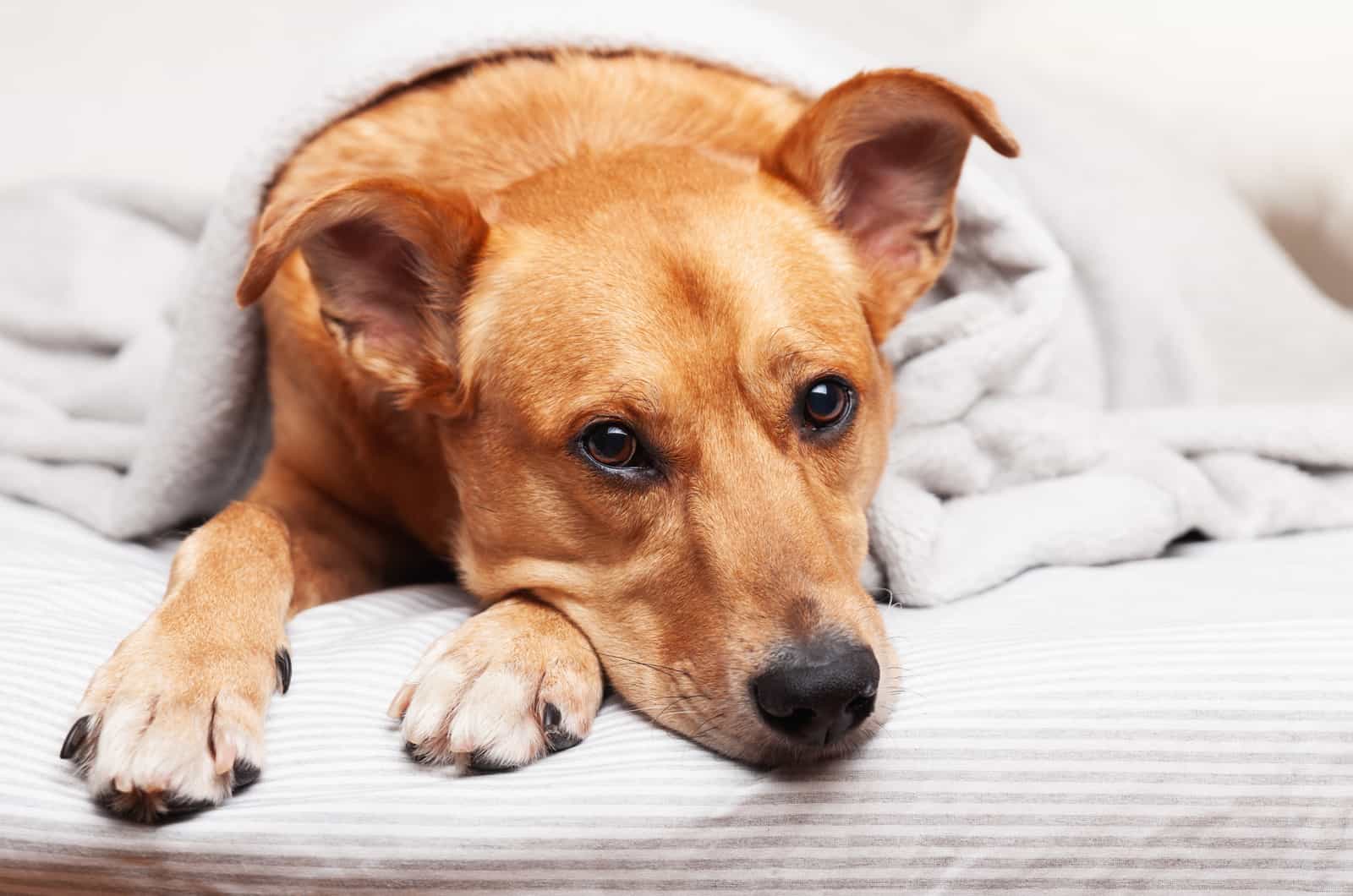
If your dog exhibits one of the following behaviors, he’s likely having trouble with rectal itching. Symptoms include:
• Scooting along the floor
• Licking around its tail or anus
• Scratching around the tail or anus
• Acting restless at night or in distress
• Change in behavior, e.g., crying at night
Other symptoms that occur with rectal itching include:
• Pain
• Bad odor
• Diarrhea or bloody stool
• Swollen or irritated anal area
• Protrusion of tissue from the anus
What Causes Rectal Itching?
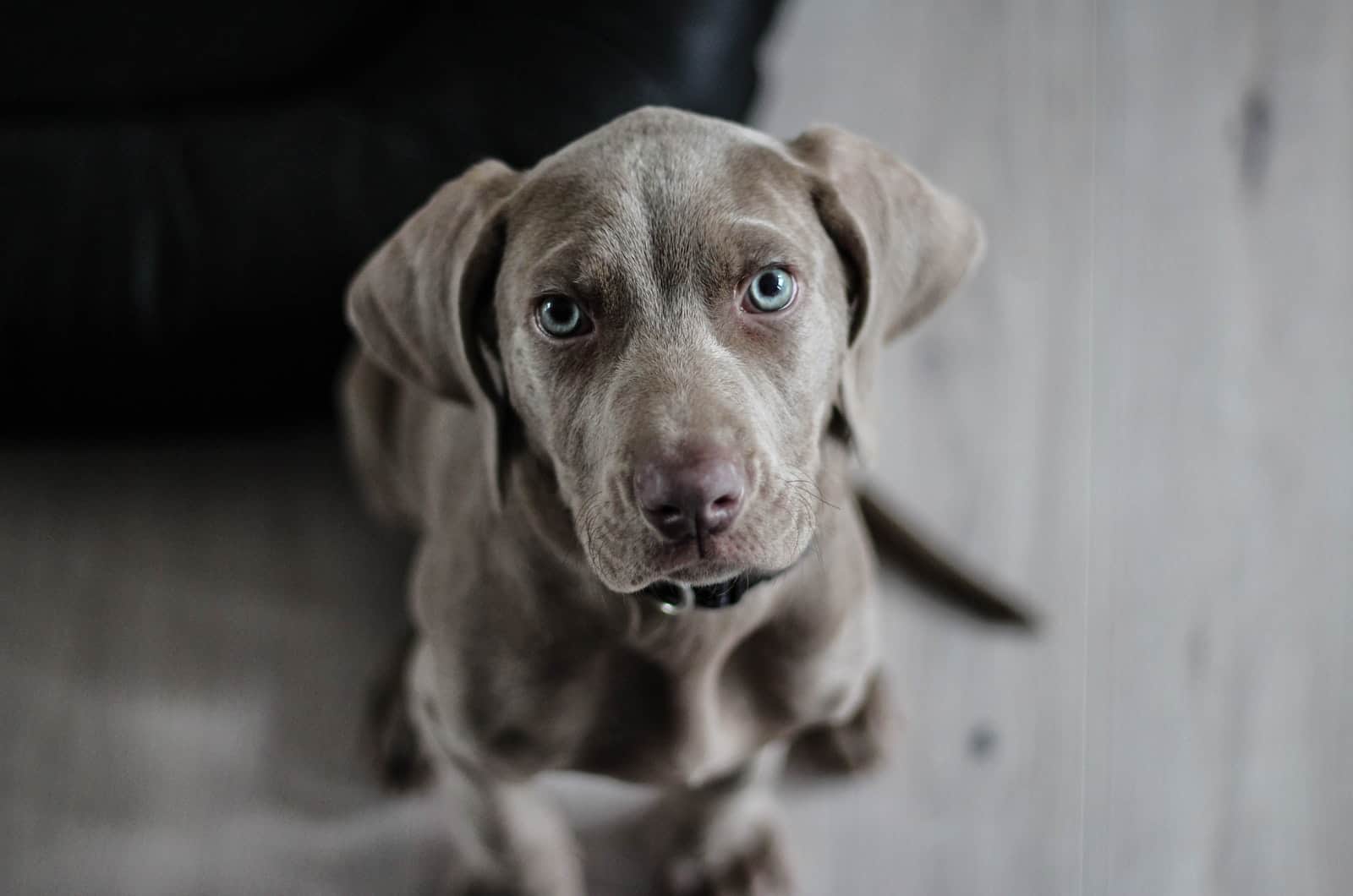
Rectal itching is only a symptom of several medical issues that may affect your dog. Expressing behavior related to rectal itching can be related to issues with the dog’s anal glands. The problem can be an infection or other culprits like:
• The anal sacs could be impacted, infected, or full
• Allergies like food, environmental, or fleas
• Bacterial infection or yeast in the skin around the anus
• Perianal or rectal tumor
• Fissures or ulcers and cracks in the skin of the rectum
• Fecal remainings irritating the skin in the anal area
• Parasitic infections like tapeworm
• Ringworms
• Grooming cuts or clipper burn
There are dog breeds that are more prone to issues that will cause rectal itching, including:
• German Shepherds, Dachshunds, Chocolate Labs, Poodles, Boxers, and Weimaraners. All of them are prone to food sensitivities.
• Basset Hounds, German Shepherds, West Highland White Terriers, Shih Tzus, Malteses, English Setters, and Cocker Spaniels. They’re prone to yeast infections around the anus.
• German Shepherds, Beagles, Bouvier des Flandres, Spaniels, Irish Setters, Collies, Old English Sheepdogs, Labrador Retrievers, and English Bulldogs. These breeds are prone to developing perianal fissures, impaction, and other related problems.
Getting A Diagnosis For Rectal Itching
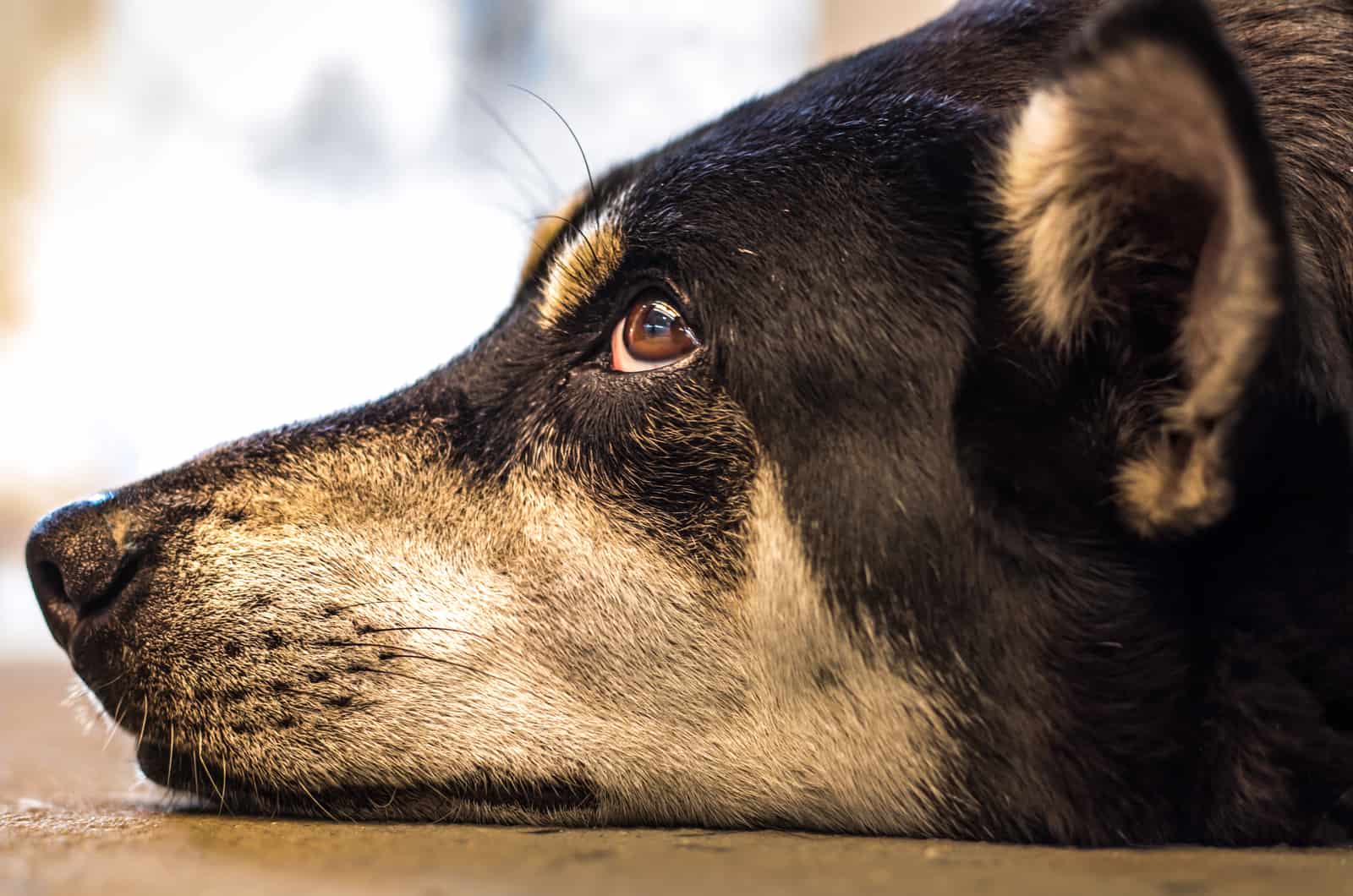
Diagnosing rectal itching can be complex as many conditions can cause it.
What your vet needs to know is how long your dog has been experiencing symptoms of rectal itching and how often they are displayed.
If you notice your pup scratching other parts of the body, you should let your vet know. Your vet will ask questions like how long your pup’s been experiencing symptoms, if he’s been ill, if you guys traveled somewhere, what kind of diet your pup has, etc.
After these questions, your vet will perform a physical examination, check the dog’s anal area for irritation, swelling, and protrusions. The vet will also check the dog’s anal glands if they’re swollen or full. If he suspects bacterial or yeast infections, he may do a skin swab for further testing.
Other tests include fecal testing for parasites, skin and hair tests for fungal infections, blood and urine tests, and in some cases, imaging for tumors. If your vet suspects environmental or food allergies, he may run allergy testing and recommend different dog food with limited ingredients.
As you might assume, rectal itching is expensive to treat. Numerous tests may cost a lot of money, and the treatment cost doesn’t fall far behind.
Grooming As A Reason Your Dog Is Licking His Butt
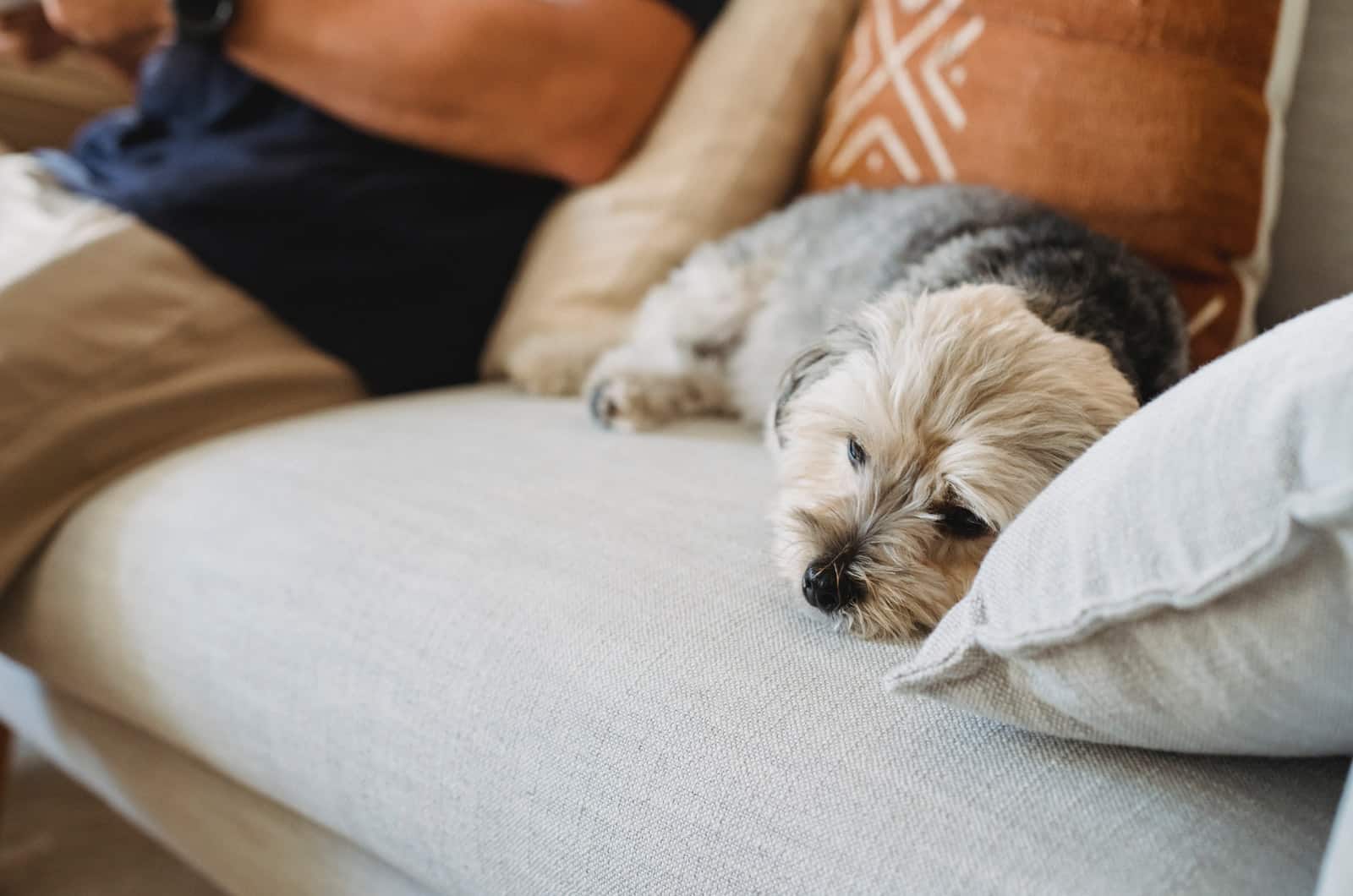
When a dog licks his butt, it doesn’t have to mean something is wrong or that your dog is suffering from a medical condition. It can mean the dog is only itchy down there, or he’s trying to groom himself.
Many long-haired dog breeds groom their hair as a way of self-cleaning. Longer hair traps fecal matter easier than short hair. It may sound disgusting to us, but it’s natural for dogs.
If you catch your dog grooming himself down there more often than normal, you should consider bathing your pup more often or taking him to the vet to run some tests.
Parasites Or Fleas As A Cause Of Itching
Self-grooming can be the reason your dog is licking his butt, but the reason for such dog behavior is usually something more serious, like fleas or parasites. These pests cause skin irritation and other symptoms like vomiting or diarrhea.
Untreated parasites may cause malnutrition and eventually anemia. If you suspect your pup is suffering from parasites, you should take him to the vet immediately.
The good news is that parasites are treatable, and treatment is simple and not invasive.
Your vet will also test the dog’s stool for specific types of parasites and prescribe treatment according to the results.
Why Does My Dog Smell Fishy?
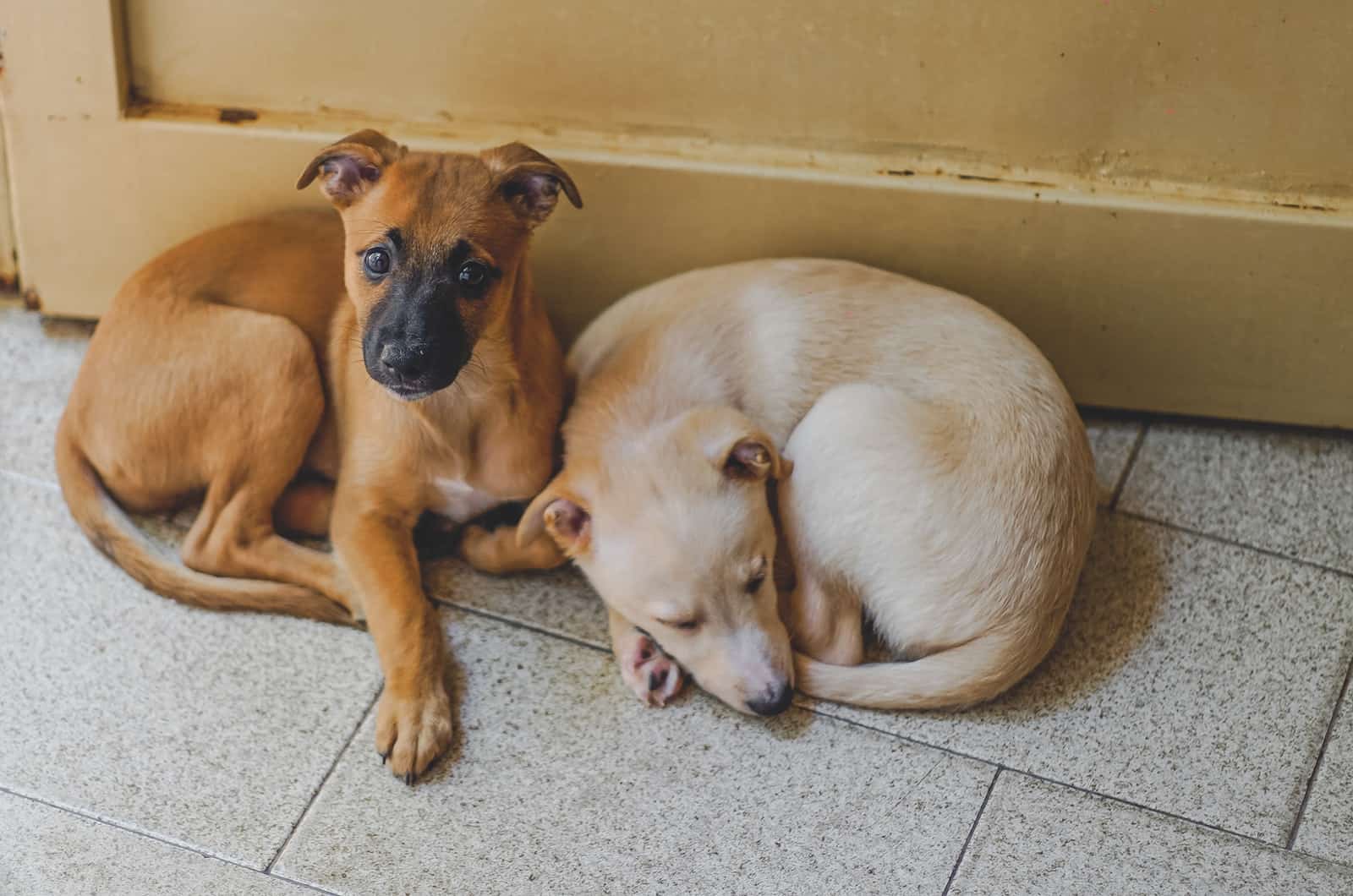
If you notice a fishy smell coming from your dog’s butt, your dog most likely has anal gland issues. Anal glands seem to have a fishy odor. Still, the amount of oil these glands release when the dog goes potty or marks its territory is not too significant, so most people don’t even notice it.
When anal glands are impacted, it causes build-up that smells quite bad and becomes more noticeable. If you leave this condition untreated for a while, the problem may escalate.
Anal sac disease is often treated by expressing anal glands. It’s a painless procedure where the excess fluid is removed by a professional or even you if you learn how!
Besides anal gland problems, the fishy smell may signify more serious problems. The AKC claims that infected glands with abscesses can smell fishy and require immediate veterinary intervention. If the vet doesn’t solve this issue, ruptures are likely to occur.
Some anal tumors can even emit a foul smell. These tumors require a biopsy if normal expression isn’t possible.
What If My Dog Has Infected Glands?
Infected anal glands are another huge reason your dog could be licking his butt so often. If these glands become infected or impacted, they will cause your dog lots of discomfort and pain. You will see your dog scratching, chewing, licking, or scooting on the floor, trying to relieve the affected area of the unpleasant feeling.
For more information read our article on the home remedies for dog scooting.
Once you notice these symptoms, it’s time to visit the vet. Usually, the biggest reason for anal gland inflammation is your dog’s diet. Your dog may eat a lot one day and lose its appetite the next. Generic food brands you see in the supermarket aren’t the best choice for your dog. They usually contain a high grain content, and grains like corn, soy, or wheat can cause allergies or trigger a sensitive stomach.
Keep your dog on a high-protein diet consisting of real meat kibble rich in fiber and supplements that improve general well-being.
A proper diet will make the irritation easier and help your pup calm down.
How To Express Your Dog’s Anal Glands
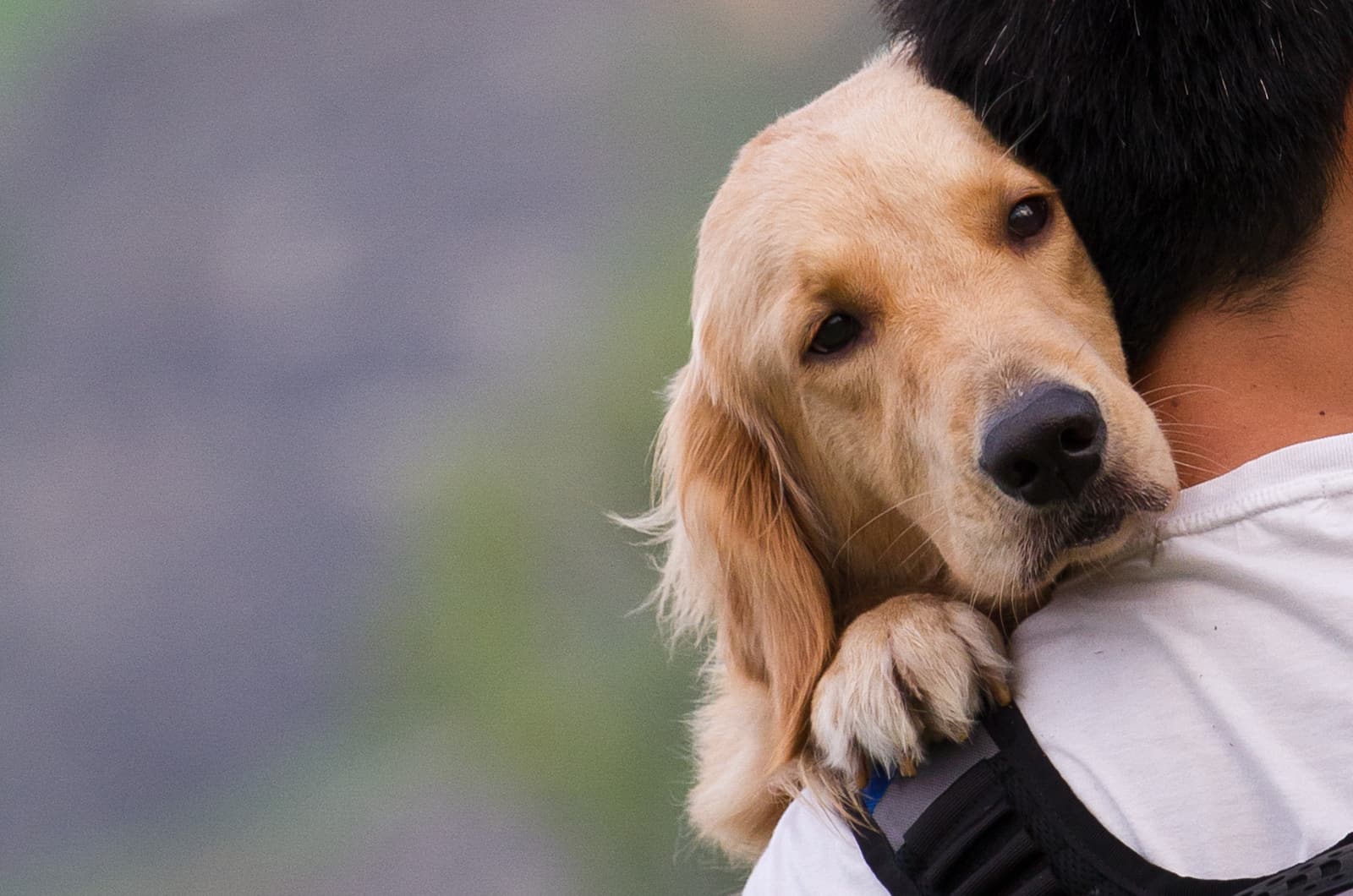
Expressing your dog’s anal glands sounds uncomfortable and disgusting, but your vet would be happy to do it for you. But, for a significant price! To save some money, why not learn how to express these glands yourself? Once you pass the disgusting factor, you’ll be happy you helped your pooch and saved some cash.
Your puppy won’t dislike you for doing this. He’ll be thankful and relieved from the pain.
Ask your vet to teach you how to do this process at home and follow the instructions down below:
• First, put on latex gloves and get a warm cloth
• Your dog’s anal glands are located at 4 and 8 o’clock when you’re looking at the dog’s anus, so make sure you find them.
• Apply firm but gentle pressure to the glands while you move upwards and back towards the anus.
• Place the cloth over the anus as you apply pressure to avoid any discharge from flying everywhere.
• Wipe your dog clean and reward them with a treat for being a good boy or girl!
Allergies And Rectal Itchiness
Allergies can also be a reason your dog licks his butt. Allergic reactions are a cause for concern. They cause inflammation of the tissue and pain. They include environmental and food allergies, i.e., reactions to some foods, fleas, or dog shampoos.
To determine whether your dog is having an allergic reaction, watch your dog closely the day before the licking begins. In other words, if you suspect something, watch your dog closely all the time. Once you find the cause, you can eliminate something from your dog’s routine or diet. It can be an ingredient like soy or a type of shampoo.
If allergies are frequent, your vet can prescribe medication to relieve some symptoms, but you should never give them any medication without consulting the vet first.
Skin Infections And Rectal Itching
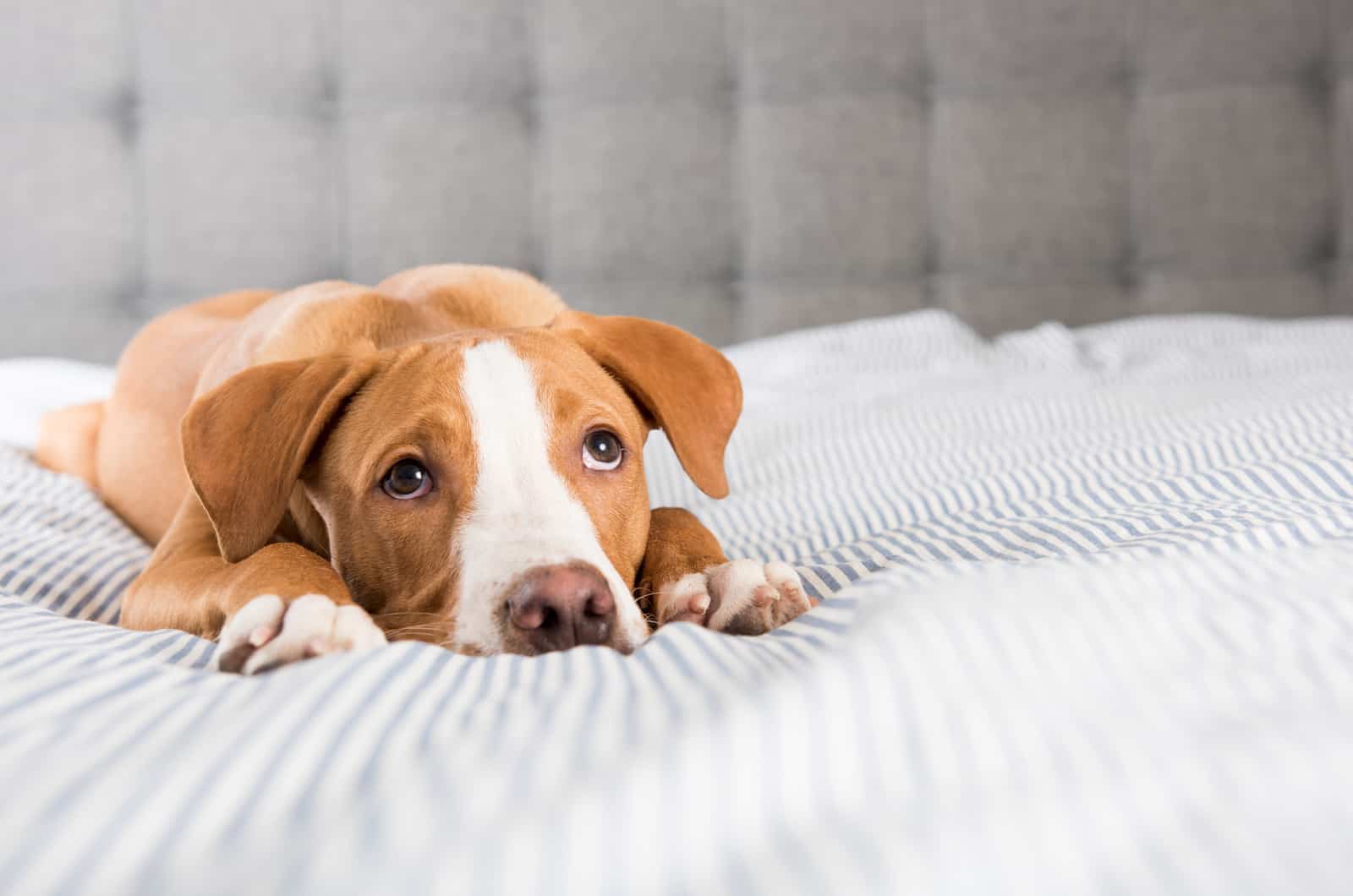
Your dog’s rear end might be itchy because of skin infections that are causing discomfort. Yeast or fungal infections can cause your dog to lick its anal region, especially if the skin is broken and fecal matter keeps irritating the skin.
If your dog licks an area with broken skin, it can only make the irritation worse. Luckily, skin infections are treatable, and with proper medication, your dog will feel like new in no time.
Perineal Hernia
A dog without health problems has a rectum that holds the pelvic region underneath and the abdomen’s contents normally. However, a dog with health issues has a weakened pelvic region structure and has the organs trapped inside. This causes a perineal hernia.
A perineal hernia is a life-threatening condition that’s also extremely painful when the dog poops and urinates. It also affects the bladder and dog’s intestines.
Dog breeds prone to perineal hernia are:
• Collies
• Sheepdogs
• Pekingese
• Terriers
• Corgis
• Dachshunds
• Boerboels and
• Kelpies
Anal Tumors
Sadly, dogs like Beagles, Bulldogs, Samoyeds, and Cocker Spaniels are prone to many anal gland problems, including developing tumors inside perianal glands. These anal gland issues happen because of the dog’s old age. These tumors can be either malignant or benign.
How Can I Prevent My Dog From Licking His Butt So Often?
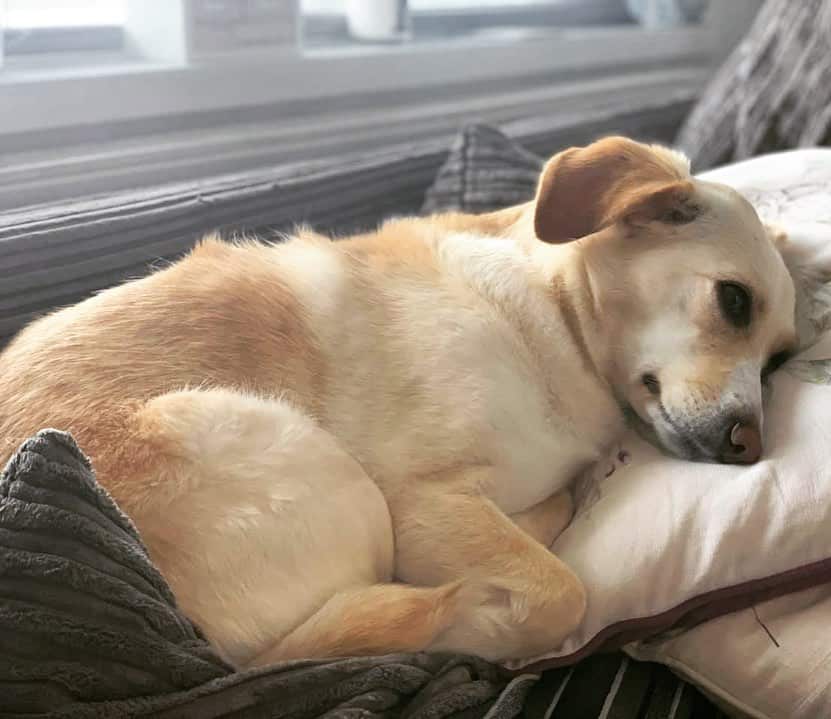
Photo from: @star_romanian_rescue_dog
If you’re sure your dog’s licking is purely for grooming and self-cleaning, then you can take some steps to reduce the frequency of butt licking.
When you see your dog cleaning parts of its body vigorously, it can mean that bath time is getting close or is way overdue. Wash your dog with a sensitive dog shampoo that suits him best. Always opt for more natural products as they don’t cause allergic reactions and reduce skin inflammation. Your dog’s coat will be lustrous and the skin elastic and healthy.
If your dog breed shouldn’t be bathed too often, use pet-cleaning wipes. These wipes are a great innovation for many reasons. Once you’re done using them, toss them in the trash, and your home is mess-free. Also, they’re quite handy and can be taken anywhere. These wipes can prolong the time between baths and keep the dog from licking its behind.
Cleaning sprays are another great product for grooming your dog AND to stop your dog from grooming himself. A bit odd, but you get the point. A dog’s mouth needs proper hygiene, too; that’s why oral cleansing sprays should be a staple part of your grooming kit.
These sprays clean your dog’s gums, teeth, tongue, leaving the mouth germ and bacteria-free. When you use this spray after seeing your pooch licking his behind, germs and bacteria that were transferred to the dog’s mouth will be destroyed. Your pup will be left with fresh breath and no chance of developing other bacterial infections.
So, occasional licking is fine. If it bothers you, try one of the methods above to end such behavior. However, if your dog keeps going with the excessive licking, there are other common reasons behind it in the form of irritations and internal parasites, and external parasites like fleas, whipworms, roundworms, hookworms, mites, etc. Ask for your vet’s opinion before it’s too late.
What Are The Treatments For The Behavior Of Dog Licking Butt?
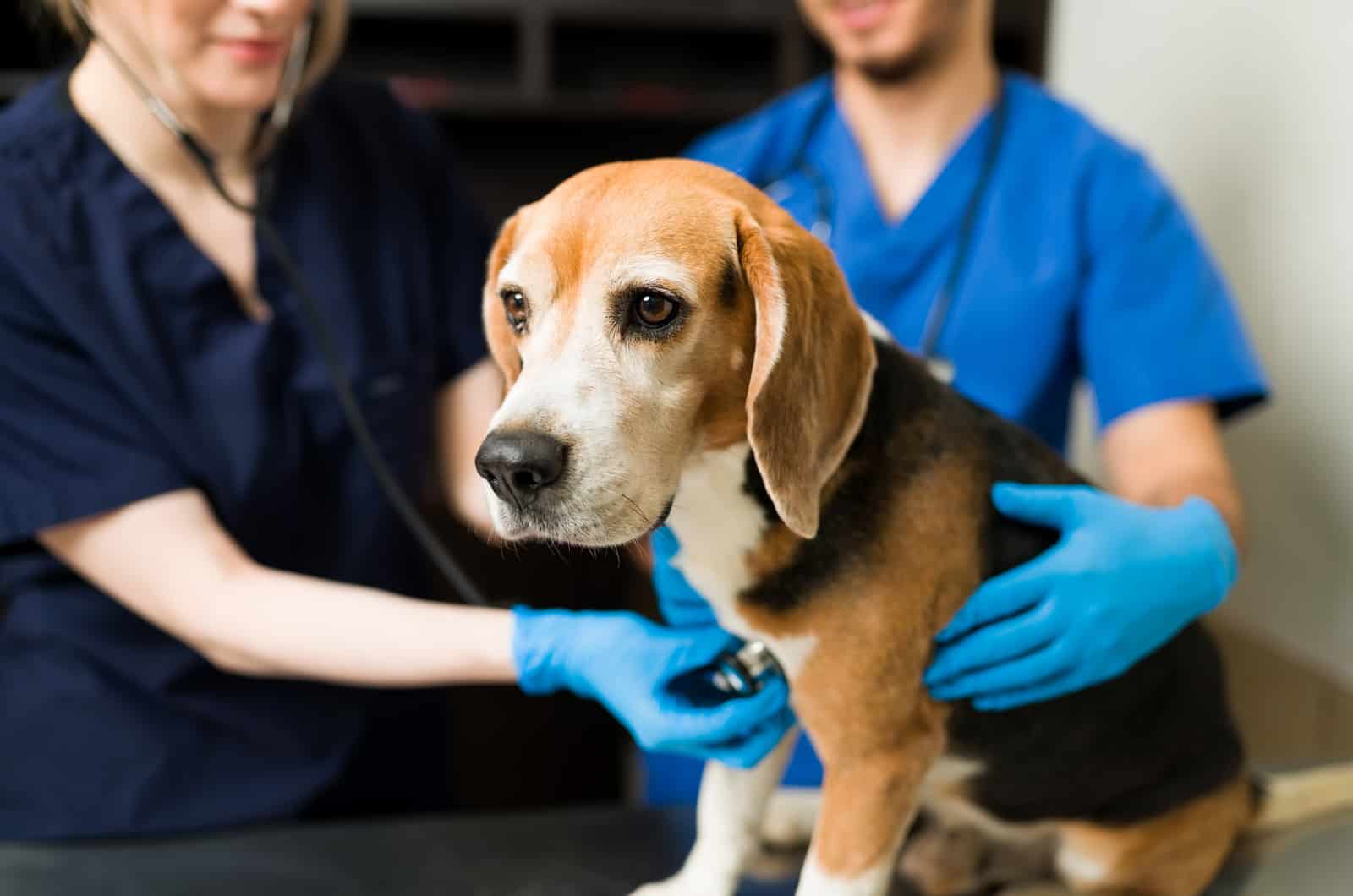
Treatment in the case of an issue with anal glands
We’ve already discussed the issue with a dog’s anal sac. Inflammation can cause fluid build-up in the anal sacs. They become thicker and cause trouble when your pup wants to go potty.
The thickened fluid is a terrific place for bacteria to grow.
Anal sac inflammation can be treated in two ways.
Your vet can empty the fluid out of the sac. This is a painful procedure and requires your dog to be sedated.
If you have an obese dog, he will develop this issue more often since overweight dogs tend to have problems emptying their anal sac.
The other way to treat this issue is to have you or your dog’s groomer drain the dog’s anal sac.
Treatment in the case of perineal fistulas
Treatment for perianal fistulas includes a change in the dog’s diet, antibiotics, and anti-inflammatory medications. Some severe cases demand surgery.
Treatment in the case of perineal hernia:
The treatment for a perineal hernia depends on how severe the condition is. Most cases require an operation followed by stool softeners, a diet rich in fiber, and decompression of the bladder.
Treatment in the case of anal tumor
Malignant tumors can be treated with surgery and chemotherapy. To help fight the tumor, dogs are given medication for blood calcium, normal kidney function, and pain management.
Treatment in the case of rectal itching
Treatment for rectal itching includes medicated shampoos, antibiotics, stool softeners, and in some cases, special cleaning treatments.
Treatment in the case of internal parasites
You should find some time to deworm your dog every so often, i.e., every three months. No matter if your Fido stays indoors or outdoors, deworming is something that shouldn’t be skipped.
If you don’t treat internal parasites, you risk your dog getting anemia, losing weight, his appetite, becoming lethargic, and blood in its stool.
Deworming is important because those pests affect the dog’s overall well-being.
The moment you notice white specks in your dog’s poop, you should take a look and determine what those are: are they bits of food and bones or worms?
Treatment in the case of allergies
If your dog suffers from food allergies, the most important thing is to determine what your dog is allergic to. For example, your pup may be allergic to chicken, but that doesn’t mean he can’t eat turkey, duck, or other poultry.
However, the treatment of seasonal allergies is more complex.
For starters, if you take your dog out for walks, don’t do it in the morning or late in the afternoon. These periods have the highest pollen concentration. Clean your dog with wipes as soon as you get home to get rid of the pollen stuck to his coat.
Your air conditioner filters need to be cleaned or replaced regularly to stop allergy attacks.
Give your dog baths more often to wash away the allergens. Always use sensitive dog shampoos and enrich the dog’s diet with supplements that are designed to prevent skin irritations and itching.
Treatment in the case of external parasites
The most common external parasites include ticks and fleas. Luckily, there are a lot of ways to prevent them.
Your pupper can wear a flea collar or be given drops to prevent ticks. These drops can be distributed on your dog’s coat for prevention.
However, if your pup does get fleas, use a flea shampoo and special flea combs to remove these nasty pests.
Final Words
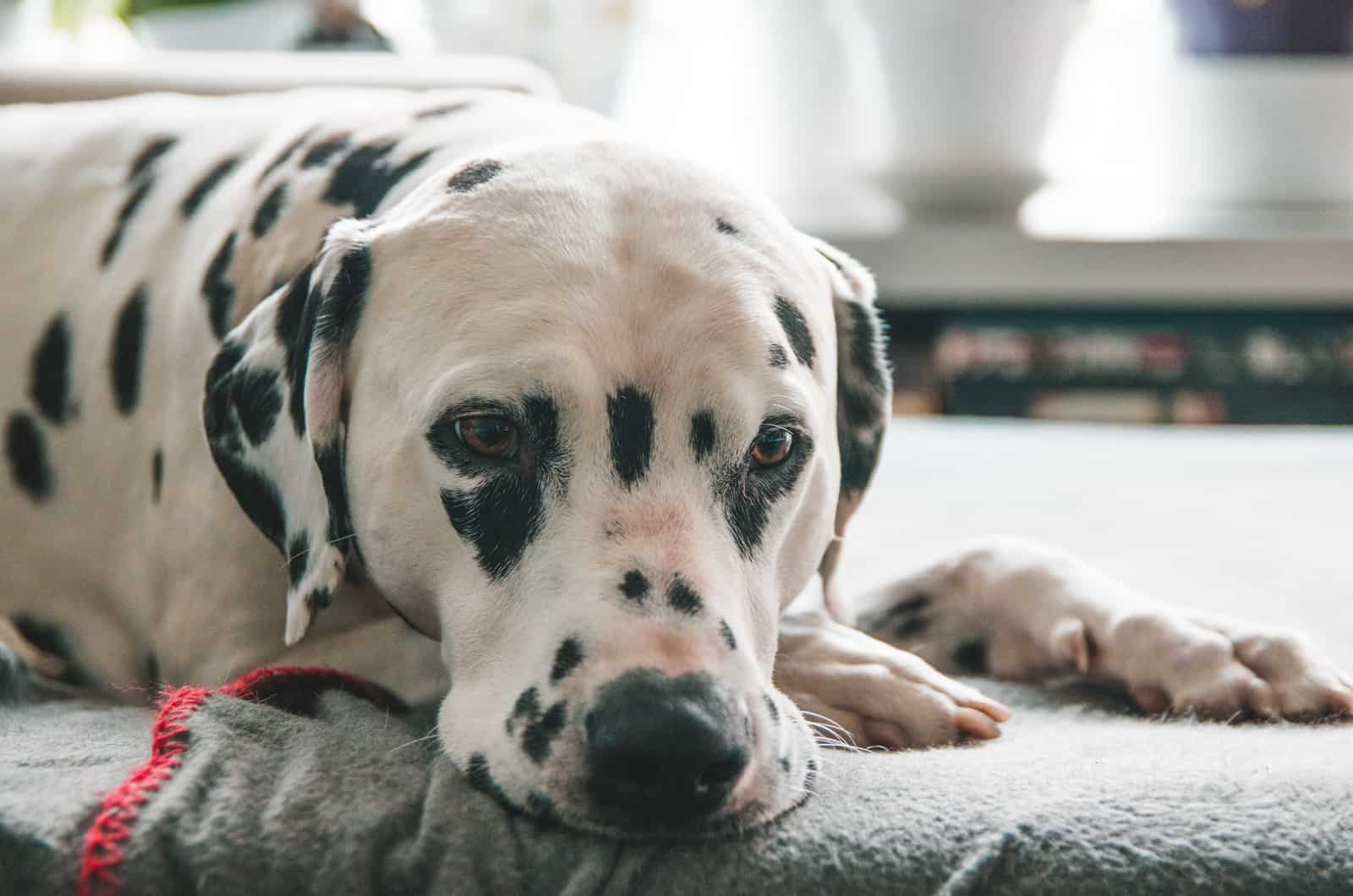
Now that you’re aware of why dogs lick their butts, you won’t wonder anymore: “Why is my dog licking his butt?”
Instead, you’ll be ready to act according to the situation.
If your dog only occasionally licks himself down there, there’s nothing to worry about. It may be gross to us, but it’s normal to them.
But, if you notice the licking becoming more frequent, ask for your vet’s opinion, take a stool sample, or ask to run tests for parasites and allergies.
Frequent licking is linked to several issues that can only escalate. Nothing’s more important to a dog owner than their dog’s health. Act in time!
Read Next:
• Why Does My Dog Eat My Underwear? 12 Reasons And 7 Solutions
• Why Do Dogs Bark When Humans Fight? 7 Reasons
• Why Is My Dog Sleeping Under The Bed? 13 Reasons & Some Tips

